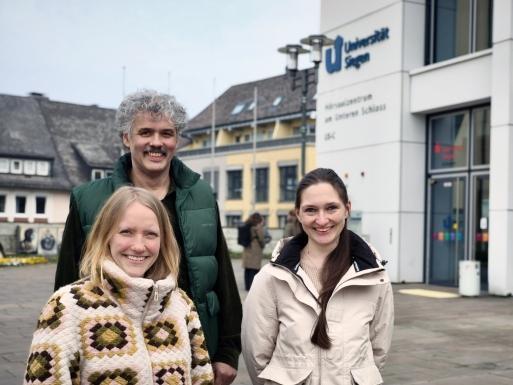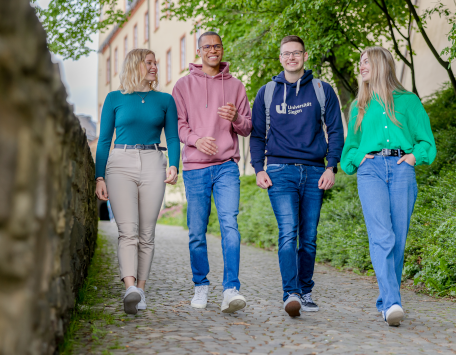Also be present online
People who often work from home have poorer chances of promotion. This is shown by a large-scale experiment involving 5,000 employees and jobseekers conducted by the Hans Böckler Foundation's Institute of Economic and Social Sciences. According to the study, employees with a high proportion of home office work are generally considered to be less committed. At the same time, so-called hybrid working has been part of everyday life in many companies since coronavirus: some employees are on site while others work from home and attend meetings and appointments online. A team from the Department of Information Systems/Ubiquitous Design at the University of Siegen is now researching how virtually connected colleagues can be perceived as equal team members.
"When agile methods are used in complex and innovative fields of work, trust-based collaboration is crucial. This includes all team members - including, of course, those who are connected online from their home office," says Siegen project manager Prof. Dr. Marc Hassenzahl. He and his colleagues want to find out why those in the office are more present and engaged than those participating online and what technical solutions could be used to eliminate this asymmetry.
In the joint project PRAESCO, they are working together with partners from TU Dortmund University, Westfälische Hochschule and the software developer Colenet GmbH. The project is funded by the Federal Ministry of Education and Research (BMBF) and the European Union via the European Social Fund Plus (ESF Plus) with a total of 1.6 million euros as part of the "Future of Work" program and is managed by the Karlsruhe PTKA project management agency. Around 380,000 euros in funding will go to the University of Siegen.
As part of the project, the researchers are focusing on two areas of work: structured, hybrid meetings and spontaneous, rather unstructured office collaboration. "We first want to look at how and why perceived asymmetries arise in these contexts between colleagues who are present and those working from home," explains Rebecca Gerstenberg from the Siegen project team. Based on research into these asymmetries from an occupational science perspective, the scientists then want to develop a portable, interactive device that combines real findings from everyday hybrid working life with the requirements of the practical partners in the project. "The demonstrator should help to improve collaboration despite physical separation. For example, it is conceivable that the device could work with visual signals such as colored light to enable team members connected online to be more present," says Gerstenberg's colleague Ronda Ringfort-Felner.
If there is such a device in the meeting room during hybrid meetings, online participants are given new opportunities to express themselves and interact - for example via light signals that are perceived much more directly by the colleagues present in the room than the raised hand sign in the Zoom window. The project team also wants to develop and test technical solutions for office collaboration in smaller groups: From video windows that allow people working in the office to communicate with colleagues working from home to avatars placed on the desk, there are a variety of ideas. Future users are to be directly involved in designing and testing them as part of PRAESCO: To this end, panels of managers and employees from agile working environments are to be formed in the project.
"Ultimately, the aim is to create a sense of closeness in hybrid work contexts. To do this, we first need to research and understand what emotional closeness actually means in a professional environment," says Prof. Hassenzahl. He and his colleagues are also researching how "closeness at a distance" can be made possible through interactive technologies in the "MITEINANDER" and "VEREINT" projects.


